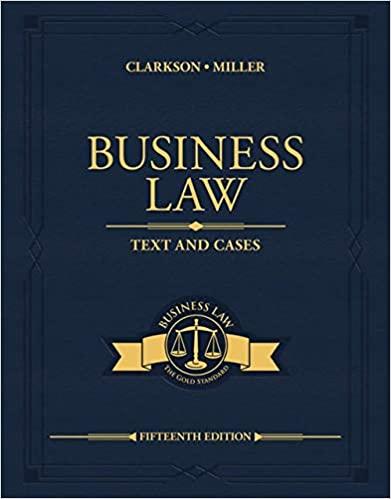Mark Carpenter, a certified financial planner, contracted to recruit investors for GetMoni.com, which owned a defunct gold
Question:
Mark Carpenter, a certified financial planner, contracted to recruit investors for GetMoni.com, which owned a defunct gold mine in Arizona. Carpenter then contracted with clients to invest their funds, sending more than $2 million to GetMoni.com. Only about 20 percent of the money went to developing the mine. The rest was used to run a Ponzi scheme. Carpenter collected another $1 million, but instead of sending it to GetMoni.com, he deposited it into his own account. A federal investigation unraveled the scheme. Carpenter was charged with two counts of fraud—one for his deal with GetMoni.com and one for his misrepresentations to clients after he stopped dealing with GetMoni.com. [ United States v. Carpenter, 676 Fed.Appx. 397 (6th Cir. 2017)] (See An Overview of Contract Law.)
(a) What elements do Carpenter’s contracts lack that would prevent them from being enforced? Can Carpenter argue successfully that he acted ethically? Discuss.
(b) Using the IDDR approach, discuss whether a certified financial planner has an ethical obligation to contract in the best interests of his or her clients.
Step by Step Answer:

Business Law Text And Cases
ISBN: 9780357129630
15th Edition
Authors: Kenneth W. Clarkson, Roger LeRoy Miller





